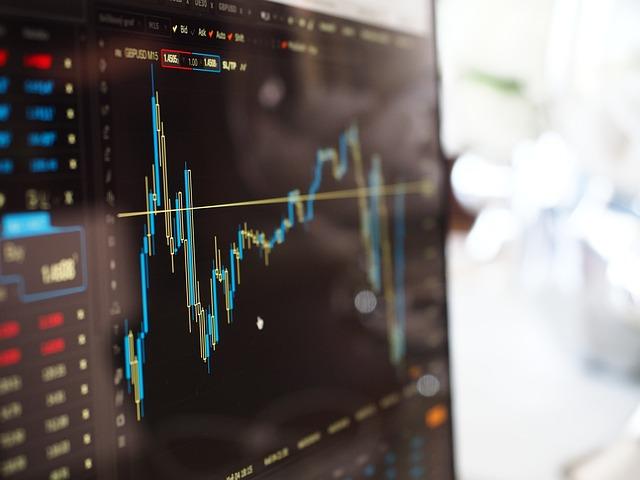Istanbul Inventory Market Faces Decline as index Falls Under Key Psychological Stage
The Istanbul inventory market is presently experiencing vital turbulence, with the index plummeting to ranges not seen within the final 5 months. Traders are grappling with a confluence of things contributing to this decline. This downturn has been partially pushed by rising inflation charges and issues over financial stability,prompting a sell-off amongst each home and overseas buyers.Key firms that after bolstered confidence inside the market at the moment are struggling to take care of their valuations, resulting in a broader sense of uncertainty.
Analysts spotlight a number of important components influencing market efficiency:
Inflation Pressures: Persistently excessive inflation is eroding shopper buying energy and company revenue margins.Political Instability: Ongoing uncertainties relating to authorities insurance policies are inflicting warning amongst buyers.World Financial Elements: Exterior pressures, together with fluctuations in worldwide markets and commodities costs, have added to the volatility.
Because the index dips under the 9,000 mark, market members are keenly observing upcoming financial indicators and potential coverage shifts. The sentiment stays cautious, with many hoping for clearer alerts from regulators that might stabilize investor confidence.

Elements Contributing to the Latest Promote-off in Turkish Equities
The latest downturn in Turkish equities might be attributed to a confluence of home and worldwide components which have shaken investor confidence.Political uncertainty stays a big concern, with upcoming elections casting a shadow over financial insurance policies. Moreover, excessive inflation charges proceed to erode buying energy, resulting in fears of decreased shopper spending and sluggish financial progress. The depreciation of the Turkish lira towards main currencies has additional amplified these issues, making imported items and providers costlier and including stress on companies reliant on overseas commerce.
On the exterior entrance, international financial pressures and rising rates of interest have led to a shift in capital flows, with buyers reevaluating their positions in rising markets like Turkey. The continuing geopolitical tensions and a unstable international market setting have additionally contributed to threat aversion, pushing funds in direction of extra steady economies. Moreover, authorities insurance policies perceived as unfavorable, resembling interventionist financial measures, have dented investor sentiment, prompting many to liquidate their holdings at a substantial loss.The mixture of those components has resulted in Turkish shares falling to their lowest ranges in months, highlighting the rising challenges confronted by the market.

Funding Methods amid market Volatility: What Traders Ought to Take into account
As Istanbul shares just lately skilled a notable decline, dipping under the 9,000 mark and reaching a 5-month low, buyers are confronted with vital uncertainties available in the market. In such turbulent instances, it’s essential for buyers to undertake a diversified method to their portfolios. This will embody:
Defensive Shares: Specializing in sectors that have a tendency to carry their floor throughout downturns, resembling utilities and shopper items.World Diversification: Spreading investments throughout totally different nations and currencies to mitigate localized dangers.Mounted-Revenue Securities: Rising allocation to bonds or different fixed-income merchandise to offer stability and a gradual revenue stream.
moreover, actively managing one’s funding technique in response to market situations is important. Traders ought to think about evaluating the next key metrics:
MetricImportanceMarket TrendsHelps establish potential upward or downward shifts.Earnings ReportsOffers insights into firm efficiency and potential dangers.Financial IndicatorsAssists in understanding broader financial well being and inflationary pressures.

Financial Indicators and Their Affect on Investor Confidence in Türkiye
The latest droop in Istanbul shares, which have fallen to a five-month low, serves as a telling barometer of the present financial setting in Türkiye.Market efficiency is closely influenced by key financial indicators that mirror the nation’s monetary well being, and buyers at the moment are extra cautious than ever. Excessive inflation charges coupled with fluctuations within the Turkish lira and ongoing geopolitical tensions create a panorama of uncertainty, undermining confidence amongst each home and overseas buyers. This has led to elevated volatility in market sentiments and a reevaluation of funding methods, as stakeholders search to navigate these difficult situations.
A number of important components are influencing investor confidence, together with:
Inflation Charges: Persistently excessive inflation continues to erode buying energy and poses challenges for financial coverage.Foreign money Fluctuations: The depreciation of the lira has made overseas funding much less enticing, including to financial uncertainty.Geopolitical Dangers: Regional tensions and political instability deter potential buyers, inflicting a flight to safer markets.Market Sentiment: A usually pessimistic outlook amongst analysts impacts buying and selling methods and may result in panic promoting.Financial IndicatorCurrent StatusImpact on InvestorsInflation rateHighNegativeexchange RateVolatileNegativePolitical StabilityUncertainNegativeInterest RatesIncreasingMixed

Outlook for the Turkish Inventory Market: Analyzing Future Tendencies and Alternatives
The latest decline in Istanbul’s inventory market, which has fallen to a five-month low and dipped under the 9,000 mark, raises a number of questions concerning the future trajectory of Turkey’s monetary panorama. This downturn might be attributed to a mixture of home financial challenges, geopolitical tensions, and international market volatility. Traders are carefully watching key indicators and authorities insurance policies, as these will likely be important in shaping the market’s restoration. Elements contributing to the market’s efficiency embody:
Inflation charges: The persistently excessive inflation continues to erode shopper confidence and spending energy.Foreign money stability: The Turkish lira’s fluctuations stay a big concern for native and overseas buyers.Political local weather: Upcoming elections and coverage modifications can drastically have an effect on investor sentiment.
Trying forward, alternatives could come up from sectors that present resilience regardless of the present local weather.Analysts counsel that industries resembling expertise and renewable power may very well be potential progress drivers. Furthermore, worldwide buyers may discover enticing valuations in Turkish equities as costs regulate to market realities. Key sectors to observe for potential restoration embody:
SectorOpportunitiesRisksTechnologyInnovation and export growthGlobal competitionRenewable Energygovernment incentivesRegulatory hurdlesFinanceDigital banking expansionEconomic instability

To Wrap It Up
the latest decline in Istanbul’s inventory market, with indices falling to a five-month low and dropping under the important threshold of 9,000, highlights the continued volatility and challenges going through Türkiye’s monetary panorama.buyers are urged to carefully monitor financial indicators and authorities insurance policies which will affect market sentiment within the coming weeks. As stakeholders navigate this unsure setting, the influence of home and international financial developments will stay a pivotal think about shaping the way forward for Turkey’s capital markets.With the scenario evolving, continued evaluation and strategic responses will likely be important for market members seeking to mitigate dangers and seize alternatives on this dynamic context.
Source link : https://europ.info/2025/03/24/turkiye/istanbul-stocks-hit-5-month-low-drop-below-9000-turkiye-today/
Writer : Victoria Jones
Publish date : 2025-03-24 21:55:00
Copyright for syndicated content material belongs to the linked Source.


